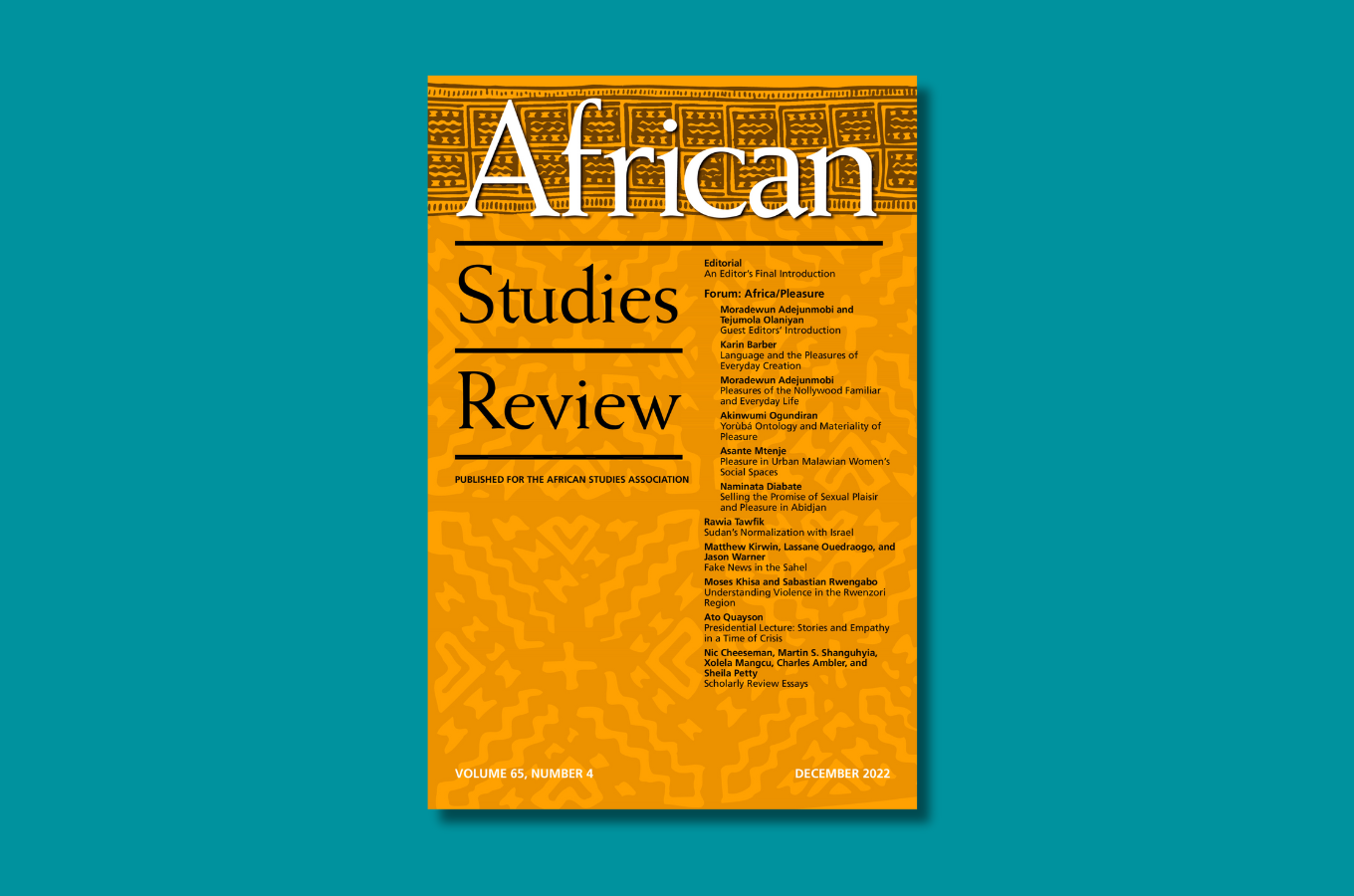
The latest issue of African Studies Review is out and it explores a range of fascinating topics including money in colonial Africa, medieval Ethiopian kingship, transitional justice in Rwanda and more. Volume 66, Issue 3 just released this past September.
The African Studies Review is a peer-reviewed academic journal founded in 1958 covering African studies. The editor-in-chief is Cajetan Iheka, and the Deputy Editor is Kate Luongo.
When we think about money and finance, we often associate these ideas with specialist language around economic management. Yet, transnational currency and monetary relationships are closely entwined with the politics of economic agency, as Gerold Krozewski and Tinashe Nyamunda argue in “Money for Africa and Money in Africa: Colonial Currencies and the Making of Economies and States, 1860s–1960s”.
The articles in this issue display the agency of Africans as they maneuver colonial monetary policies designed to disfavor them. Read about a couple of articles and their key arguments below:
Toyomu Masaki’s article, “The Management of the Bank of Senegal and the Formation of a Colonial Economy, 1840s–1901,” examines monetary policies in colonial Senegal focusing on the Bank of Senegal, which provided banknotes and other financial services. This bank helped to facilitate African entrepreneurship and acquisition of property in Senegal.
In Tinashe Nyamunda and Admire Mseba’s “Money in South-Central Africa, 1890–1931: Africans, Imperial Sterling, and Colonial Economy-Building,” we see the difficulties that Africans in the South-Central African context faced when accessing currencies and banking services, caught between the competing interests of the British colonial state and the mining companies. Despite their economic disadvantages within the colonial economy, African money users devised creative mechanisms for monetary exchange and for storing savings in the face of scarcity.
Karin Pallaver’s “From German East African Rupees to British East African Shillings in Tanganyika: The King and the Kaiser Side by Side” highlights how Africans, Indians, and Europeans used different currency denominations and the disparate impacts of monetary regulations and practices in the region.
Along with the articles centered on the topic of money, the issue also includes essays on religious dynamics in contemporary Ethiopia, the evolution of transitional justice in post-genocide Rwanda, and a host of fascinating book reviews. The reviews include books on youth popular culture in Africa, African intelligence services, and medieval Ethiopian kingship.
Check out Volume 66, Issue 3 here.









COMMENTS -
Reader Interactions